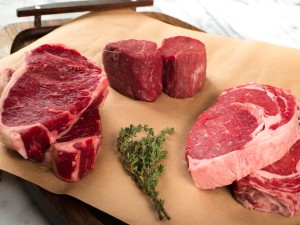
Scott Lively is a longtime leader in the organic beef industry who currently leads Pure Land America, a company that partners with leading Midwest sustainable beef producers and sources meat from 100 percent grass-fed cattle. A key selling point of the product Scott Lively offers is that its organic beef is leaner and healthier than that from grain fed cattle.
Consumer interest in grass fed cows has increased in recent decades, reflecting the fact that cattle evolved over the millennia eating grass in pastures. Grain fed cows are fed grain-based feeds containing cottonseed, corn, soy, and sorghum that are not part of the diet their stomachs evolved to work best with.
Research has backed this up, demonstrating that digestive issues and bacterial contamination are more common among cattle that eat grains than grasses. More than 10 percent of grain-fed cows have been shown to develop liver abscesses after four months in a feedlot setting. By contrast, less than 1 percent of cows that stick to more natural pasturing habits suffer from this serious condition. The bottom line is that feeding cattle nothing but grass not only results in meat that is lean and packed with omega 3s, but is more humane for the cattle.
